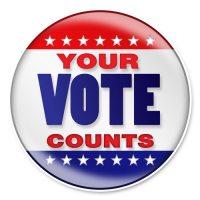New Ballot Law Probably Won’t Take All the Stupid out of Initiative Process

When Tim Draper failed to gather enough signatures this month to qualify his Six Californias proposition for the 2016 ballot, voters were denied a chance to weigh in on a worthy addition to a long tradition of head-scratching ballot initiatives.
And it may very well be tougher in the future to gain that sort of recognition. Last week, Governor Jerry Brown signed reform legislation that tosses a few obstacles in their way. Senate Bill 1253 requires a 30-day public review and amendment process after an initiative is introduced.
Sponsors get an extra 30 days (a full six months) to gather signatures, but must notify lawmakers when they have 25%, who can then conduct hearings on the measure. Proponents would have the option of amending their initiatives based on that input. The state will notify the public who the top 10 donors are on each side of the issue.
Although the Los Angeles Times says it is the first major change in the initiative process in four decades, some critics felt it doesn’t do enough because, ultimately, a proponent can put his original measure on the ballot without any changes if he can gather enough signatures.
It’s a system that has produced some fine laws over the years, but is also fraught with peril.
There were a record 48 state initiatives on the 1914 ballot, three years after Californians inaugurated their great Progressive experiment with direct democracy. Twenty-seven passed, including the direct election of U.S. Senators.
The next year, only nine made the ballot and they all lost, according to Ballotpedia. It’s possible 1914 may have been the government reform’s high-point. Since, then all manner of propositions have reached the ballot through diligent signature gathering or a proposal by the state Legislature. The prohibition of alcohol was a staple of the early ballots, losing in 1914 and twice in 1916. It became federal law in 1920 and lasted 13 years.
In 1918 (pdf), a legislatively-referred measure, Proposition 20, would have established a system to provide health insurance to people and their dependents “whose incomes [were] . . . insufficient to meet hazards of sickness and disability.” It lost.
In 1920 (pdf), voters approved limitations on doctor sales of heroin, cocaine, opium and morphine, but defeated a measure making it unlawful “to dissect, vivisect or torture any living person or living animal.”. It was the first of many animal protection propositions to surface.
That year, state voters rejected putting a law regulating chiropractors into the Constitution, but approved it in 1922 (pdf), thereby obligating voters to approve any subsequent changes. They got that chance in 1934, 1939, 1948, 1950, 1952, 1960, 1970, 1972, 1976 and 2002.
In 1922 (pdf), voters also defeated propositions obligating people to get a license to practice law. In 1926 (pdf) they decided not to put a Bible in every public school and cracked down on oleomargarine scofflaws. The original oleomargarine law was adopted by the big dairy state in 1894 to combat the “fraudulent sale of oleomargarine [which] had reached scandalous proportions throughout the nation,” according to that year’s ballot guide, but needed fine-tuning to require that it “not be manufactured in exact imitation of butter;” that patrons be warned if it were substituted for butter; and that it not be passed off in advertising as being “in any sense a dairy product.”
In 1930 (pdf), voters decided not to close all stores on Sunday and in 1936 (pdf) rejected a tax on oleomargarine. In 1958 (pdf), in one of a series of regular votes on boxing, voters refused to repeal a law that banned it on Sundays and Memorial Day. In 1962 (pdf), at the height of the Cold War, voters rejected a declaration of the “existence, purposes, and objectives of a world communist movement.”
The electorate got a little feisty in 1964 (pdf), banning cable television (“No Fees for Television Programs Transmitted to Home Televisions”). That was overturned by the courts as unconstitutional. So was a proposition that said people could discriminate against anyone in the sale, lease or rental of residential real property.
California has had a lot of important issues on the ballot since then. Proposition 13 imposed a two-thirds requirement in 1978 for budget votes and tax increases, but voters rejected Proposition 6, which would have barred homosexuality in the public school system.
Proposition 38 in 1984 required ballot materials to be in English only. A decade later, Proposition 187 prevented undocumented immigrants from receiving public services, but that was declared unconstitutional. Voters outlawed same-sex marriage in 2008, but that was also declared unconstitutional.
It remains to be seen if there will be unintended consequences from SB 1253’s attempt to tame the forces of direct democracy, or if initiative proponents will be deterred. Perhaps the issue will need attention from voters at the ballot box in the future.
–Ken Broder
To Learn More:
Gov. Brown Approves Major Changes in Initiative Process (by Patrick McGreevy, Los Angeles Times)
Viewpoints: Bill Will Fix Much of What’s Wrong with Ballot Initiative Process (by Dan Carson, (Sacramento Bee op-ed)
Why We're in This Mess: Stupid California Propositions (That Actually Passed!) (by Abraham, Epton, Abetacular)
Millionaire-Inspired Ballot Measures Fare Worse than Hoi Polloi Initiatives (by Ken Broder, AllGov California)
- Top Stories
- Controversies
- Where is the Money Going?
- California and the Nation
- Appointments and Resignations
- Unusual News
- Latest News
- California Forbids U.S. Immigration Agents from Pretending to be Police
- California Lawmakers Urged to Strip “Self-Dealing” Tax Board of Its Duties
- Big Oil’s Grip on California
- Santa Cruz Police See Homeland Security Betrayal in Use of Gang Roundup as Cover for Immigration Raid
- Oil Companies Face Deadline to Stop Polluting California Groundwater





